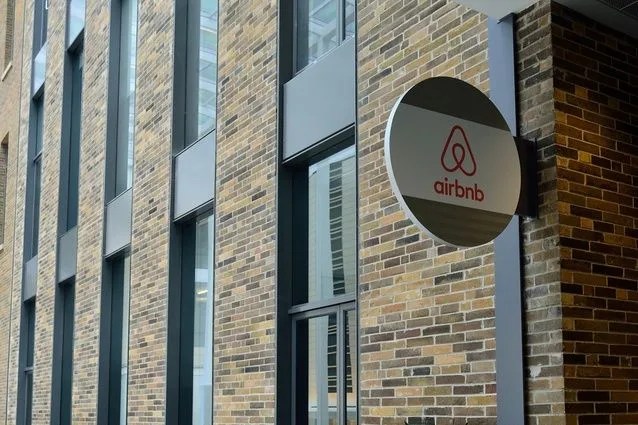Have you ever wished you could borrow someone’s visa or residency status just like you borrow a vacation home on Airbnb? Well, in 2025, that’s not far from reality. The concept of “Residency Sharing” is shaking up the traditional world of citizenship and residency, creating a flexible, tech-driven alternative for global mobility and tax planning.
Let’s dive into how this modern-day “Airbnb for visas” is changing the game — and what it means for you.

Table of Contents
What is Residency Sharing?
Residency sharing is essentially a platform-enabled arrangement where individuals can legally share or “borrow” tax residency or visa status from someone else. Think of it as subletting your legal residency privileges, enabling a secondary user to enjoy residency benefits without going through the long, expensive process of naturalization or citizenship-by-investment.
Unlike traditional citizenship or permanent residency — which often involve years of paperwork, hefty fees, and strict physical presence requirements — residency sharing leverages technology and legal frameworks to make residency more accessible and flexible.
Why Is Residency Sharing Taking Off in 2025?
Several factors have converged to fuel this trend:
- Remote Work Revolution: The rise of digital nomads and remote workers means more people want access to multiple jurisdictions for lifestyle and work flexibility.
- Tax Optimization: With global tax laws tightening, savvy individuals and businesses seek efficient ways to manage tax residency without uprooting their lives entirely.
- Global Mobility Needs: Frequent travelers, entrepreneurs, and investors want multiple residency options to bypass visa restrictions and open doors to international opportunities.
Residency sharing platforms provide exactly that — on-demand access to residency perks without the red tape.

How Does Residency Sharing Actually Work?
Platforms like Borrow a Base and others have built digital marketplaces where residency rights can be legally rented or shared.
Here’s the typical flow:
- Hosts list their residency status—people with existing residency permits offer a share of their rights.
- Users select a residency package that suits their needs, be it for tax purposes, healthcare access, or travel convenience.
- Contracts are signed digitally, ensuring compliance with local laws and tax authorities.
- Users can “activate” the residency, often needing to meet minimal physical presence or digital engagement requirements, which are increasingly being relaxed thanks to evolving legal frameworks.
The key here is legality and transparency — residency sharing isn’t about faking presence; it’s about using existing laws smartly and ethically.

Benefits of Residency Sharing
- Cost-Effective: No need to invest hundreds of thousands in citizenship-by-investment programs.
- Flexible: Share residency across multiple countries without permanent commitments.
- Quick Setup: Gain residency benefits often within days, compared to months or years.
- Access to Global Services: Banking, healthcare, and education become more accessible when you hold residency status.
But What About the Risks?
Of course, new models come with new challenges:
- Legal Grey Areas: Laws are evolving, and not all jurisdictions have clear rules on residency sharing.
- Compliance Complexity: Tax authorities may scrutinize shared residency arrangements, requiring careful documentation and expert advice.
- Potential for Abuse: Like any sharing economy model, there’s risk if users misrepresent their intentions or fail to meet residency requirements.
Governments worldwide are watching closely — expect regulations to tighten or clarify as residency sharing grows.

Is Residency Sharing Right for You?
If you’re a digital nomad, international entrepreneur, or simply someone looking for more flexible global options, residency sharing could be a game-changer. It offers a smarter, faster, and cheaper way to navigate the world’s complex residency and tax landscapes.
But remember, it’s essential to do your homework — consult legal experts, understand your obligations, and choose reputable platforms.
Looking Ahead: The Future of Global Mobility
Residency sharing isn’t just a trend; it’s part of a broader shift toward decentralized, technology-driven citizenship solutions. As countries embrace digital identities and borderless work becomes the norm, expect residency sharing platforms to evolve — maybe even merging with digital ID and blockchain tech to create seamless, border-free living.
Imagine a world where your “residency portfolio” is as flexible as your Airbnb bookings — that’s the future knocking on the door in 2025.
Conclusion
Residency sharing is revolutionizing the way we think about citizenship and global living. By turning residency into a shared, accessible asset, platforms like Borrow a Base are making international mobility easier, cheaper, and more flexible. While challenges remain, this innovative approach is set to redefine the border control game for digital nomads, investors, and global citizens alike.
Ready to unlock the potential of residency sharing? The new world of flexible citizenship awaits.
FAQs

Q1: Is residency sharing legal everywhere?
Residency sharing legality varies by country; always check local laws and consult professionals.
Q2: Can I use residency sharing for tax purposes?
Yes, many use it to optimize tax residency, but compliance is crucial.
Q3: Do I need to live in the country where I share residency?
Physical presence requirements differ but are often minimal or flexible with new rules.
Q4: How fast can I get residency through sharing platforms?
Typically, within days to a few weeks — much faster than traditional routes.
Q5: Are there reputable platforms for residency sharing?
Yes, Borrow a Base is a leading example, with others emerging as the market grows.



